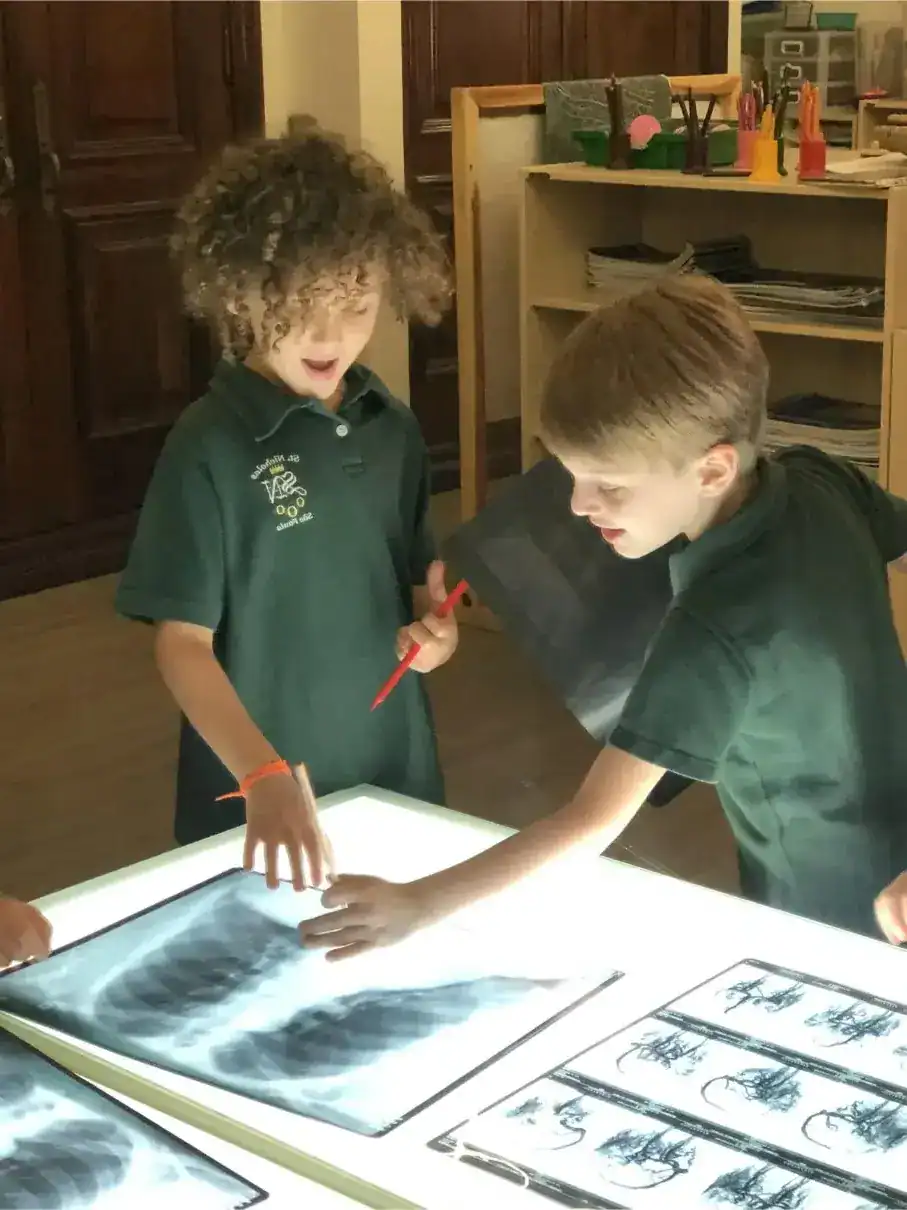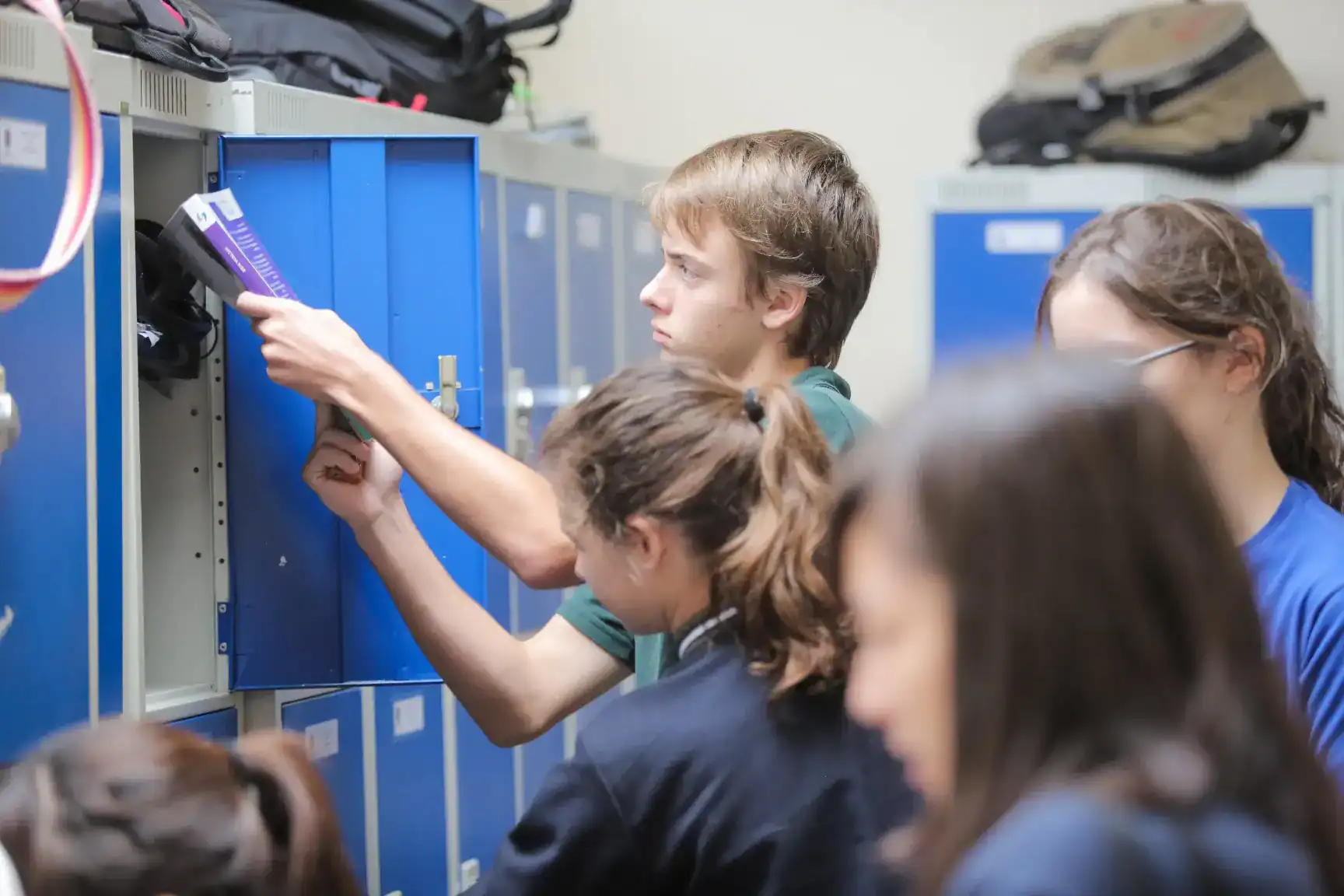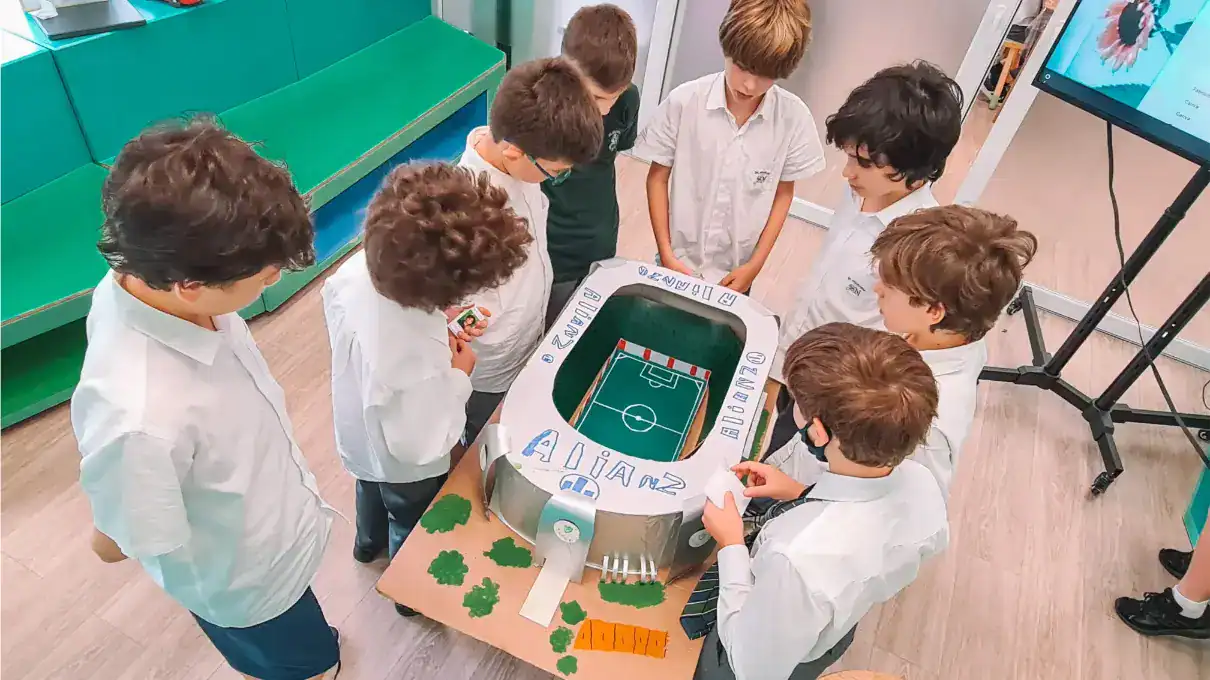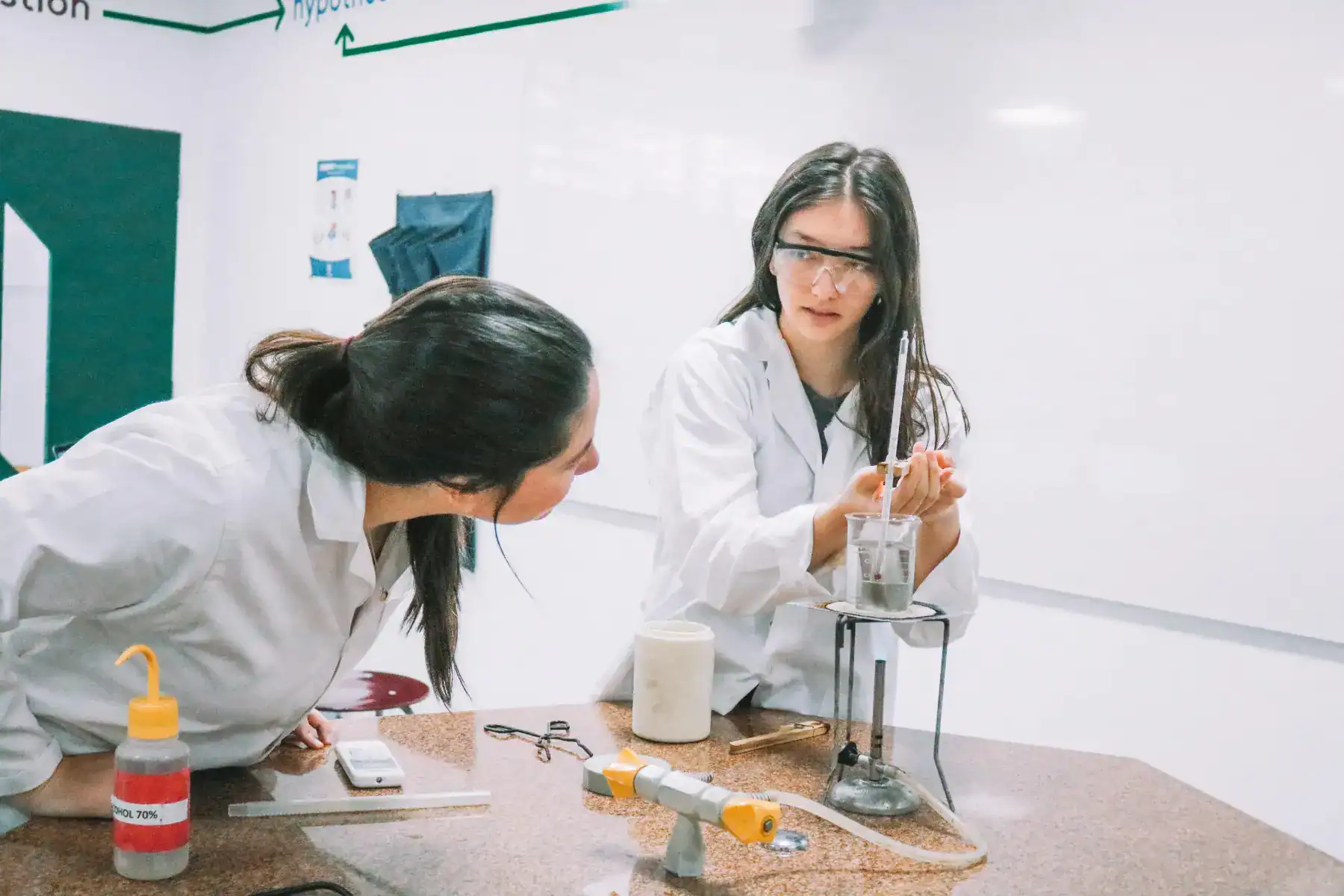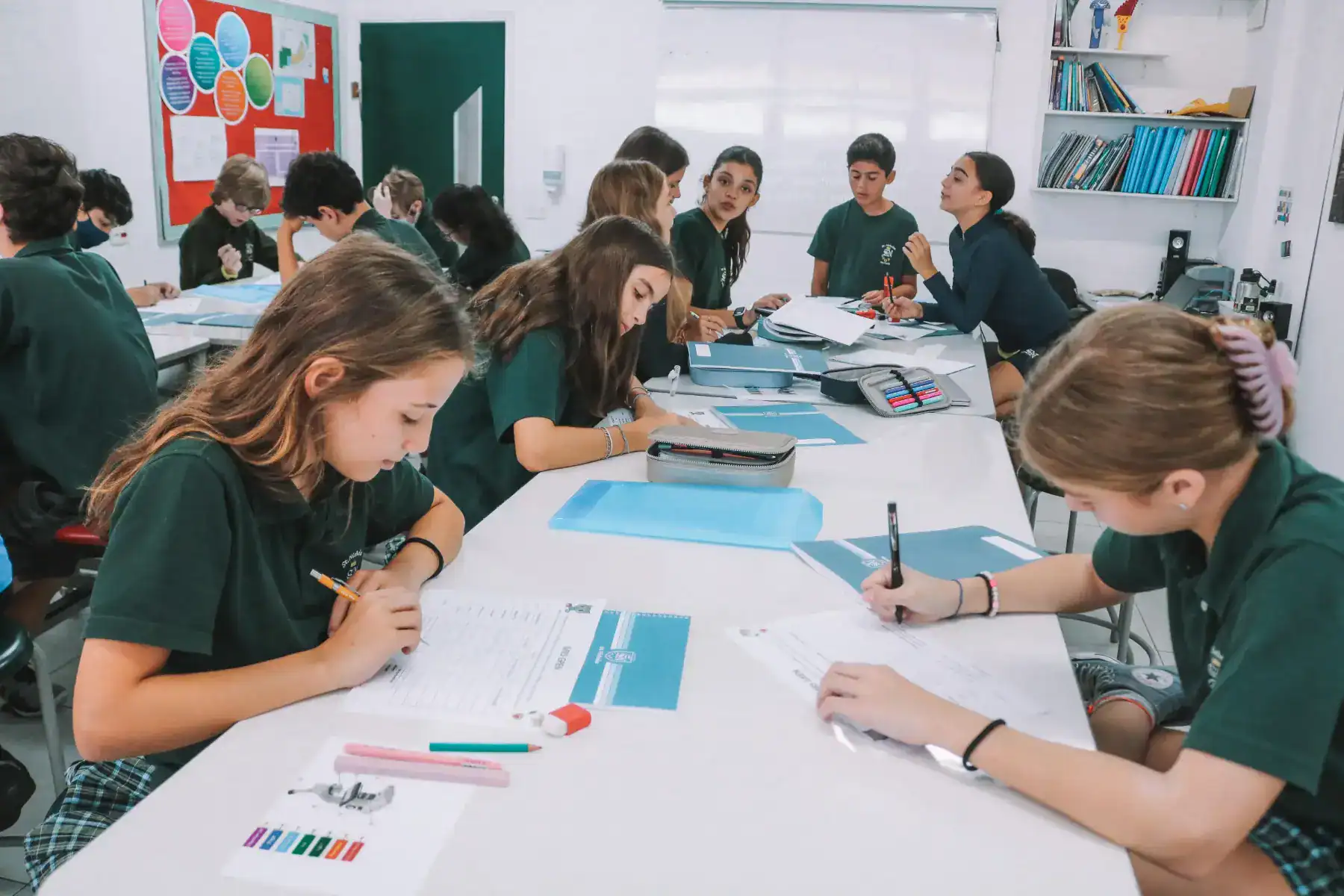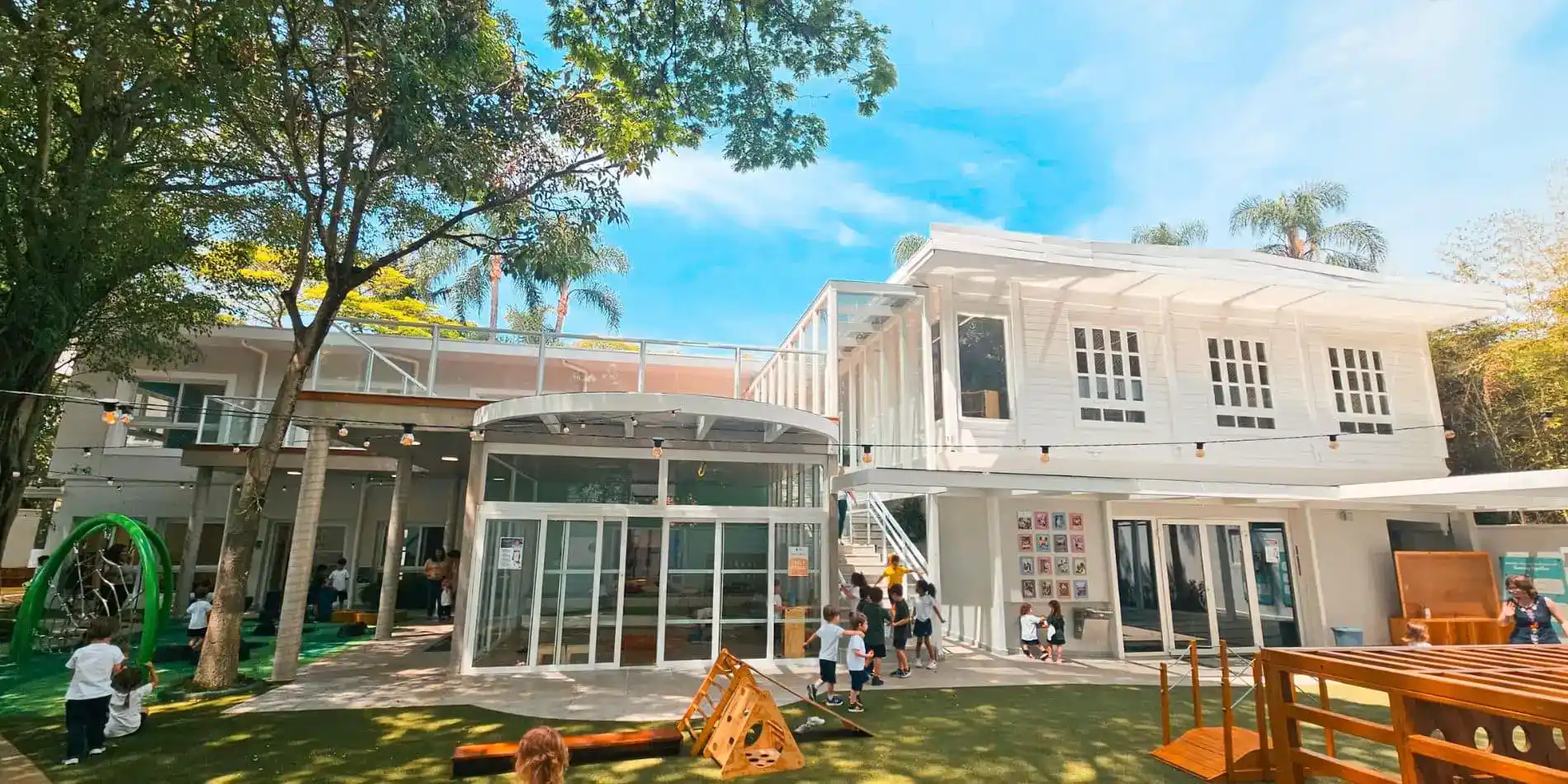
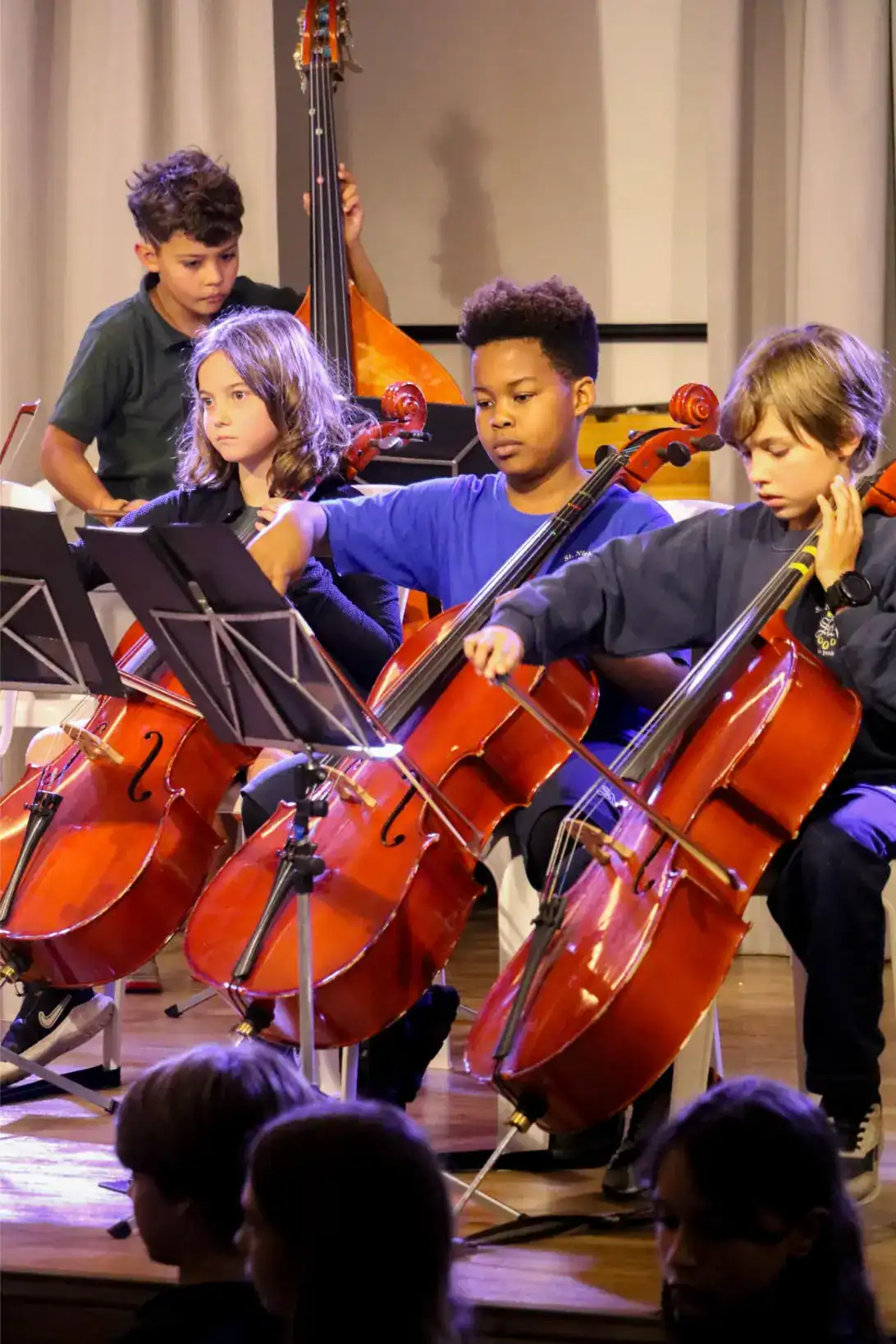
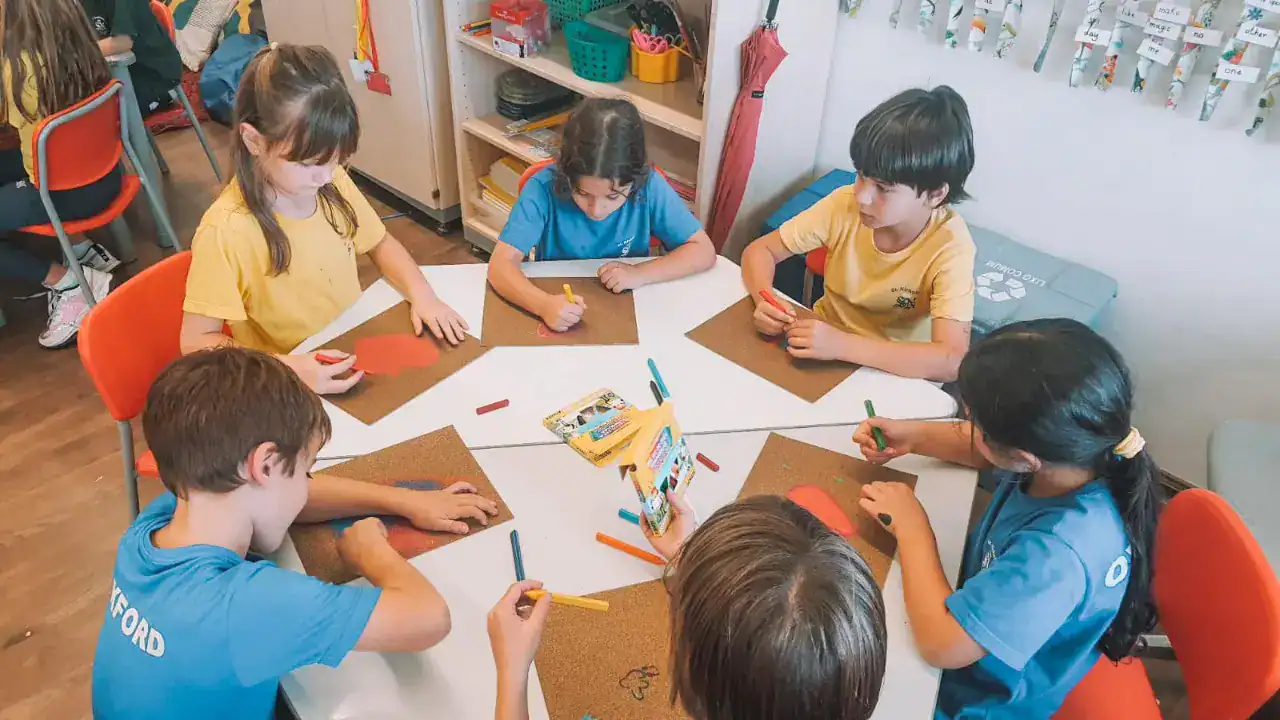
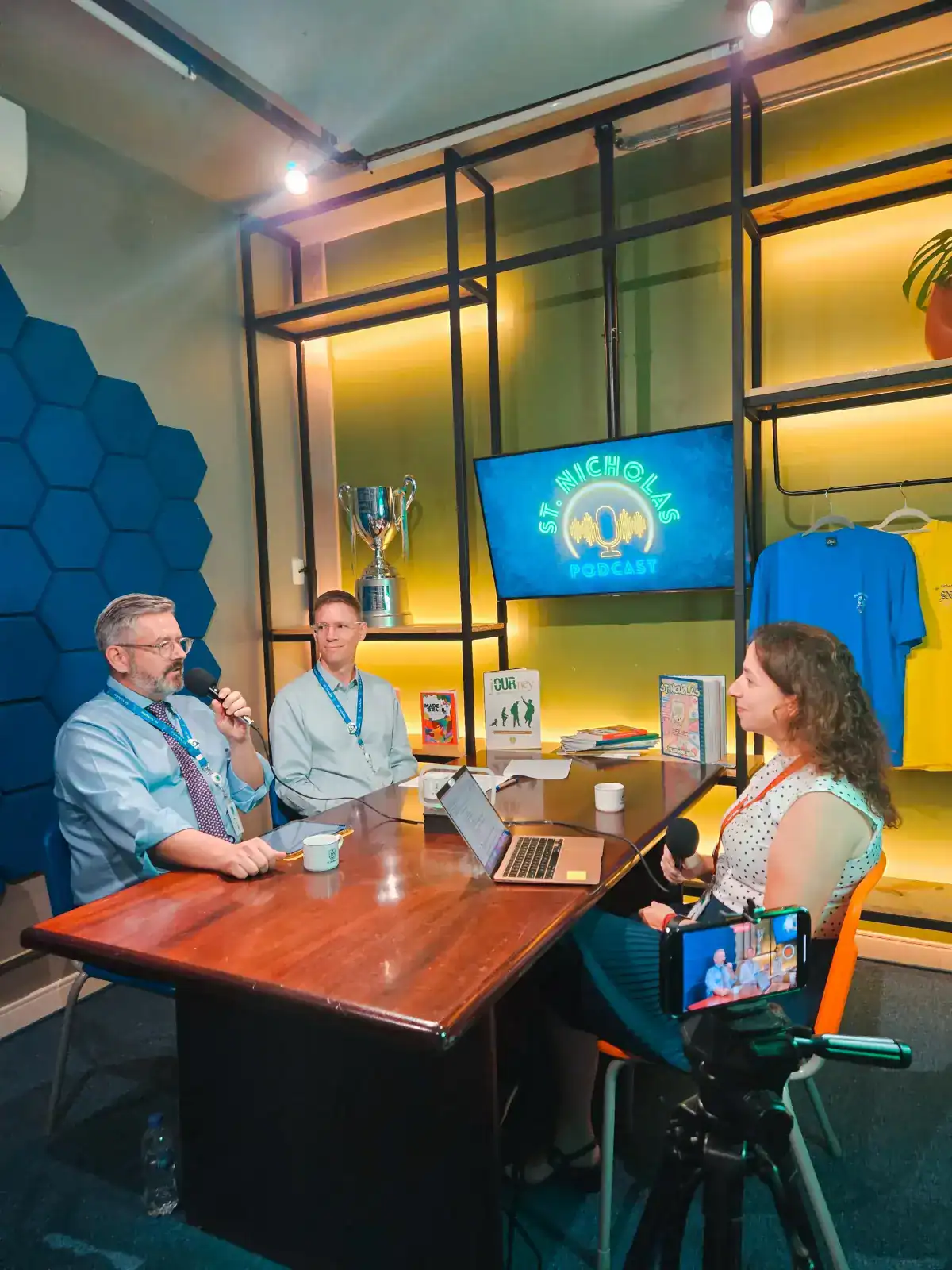
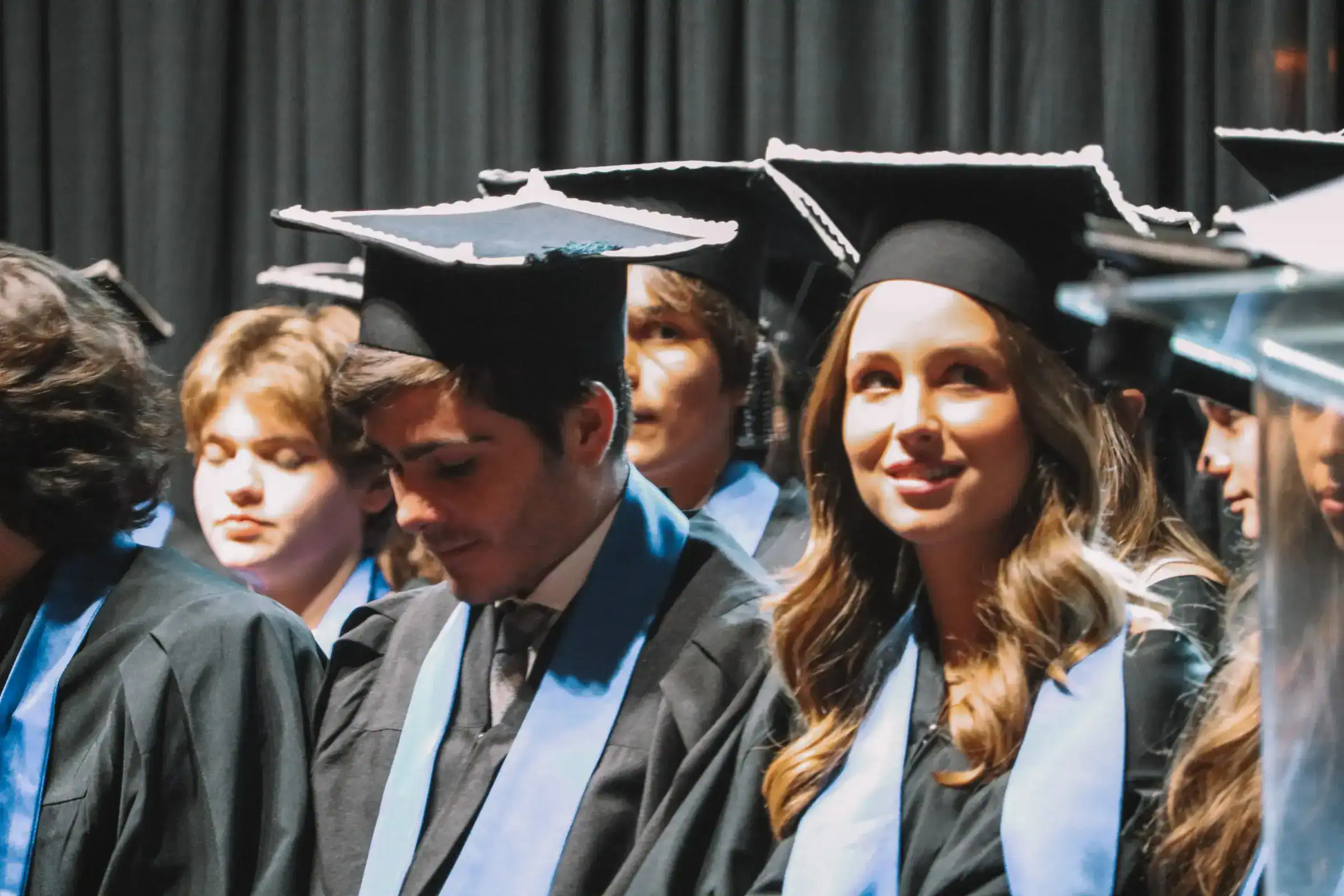
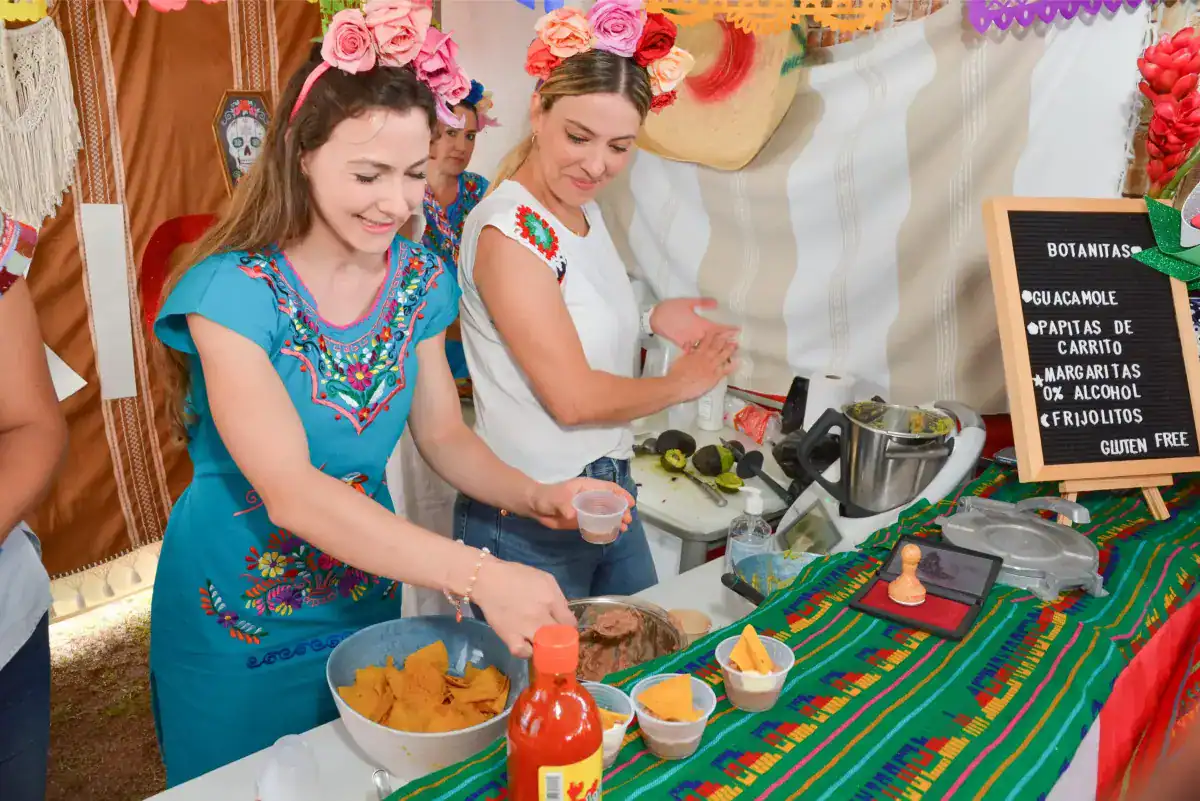

St. Nicholas School Pinheiros
Destaques
- Aprendizagem bilingue para uma fluência global
- Integrar a tecnologia na aprendizagem do mundo real
- Realçar o carácter, a empatia e o respeito
Visão
A Escola St. Nicholas atende famílias de São Paulo que buscam uma experiência de aprendizado pessoal e significativa: uma escola que prepara cada criança para seu próprio sucesso.
Como uma Escola Mundial do IB que oferece o PYP, MYP e DP, a comunicação, a colaboração e a reflexão são altamente valorizadas. Como uma escola inclusiva, todos os membros da comunidade de St. Nicholas são valorizados e têm a oportunidade de acessar a experiência de aprendizagem – nós encontramos os alunos onde eles estão e os ajudamos a buscar o seu melhor. Como uma escola internacional, nosso objetivo é orientar as crianças para que se tornem cidadãos globais e com mentalidade internacional, que entendam que o mundo inteiro é o seu lugar e que há um lugar para todos.
A diversidade cultural é celebrada e, com ela, valores de respeito, cidadania, curiosidade e cuidado são desenvolvidos. Como prioridade, os alunos da St. Nicholas conectam seu aprendizado com a escola e as comunidades locais, nacionais e globais. O aprendizado é conduzido por meio de questionamentos, geração de perguntas e ativação de habilidades de pensamento criativo e crítico, desenvolvendo a paixão pelo aprendizado.
Os alunos descobrem e usam suas vozes, se envolvem em suas comunidades e agem com propósito para causar impacto. Em nosso ambiente internacional na dinâmica cidade de São Paulo, utilizamos todas as vantagens da nossa diversidade cultural e linguística para enriquecer o aprendizado. Com mais de 21 nacionalidades reunidas diariamente, aprendemos uns com os outros, construindo nossa apreciação pelas línguas e origens representadas no campus.
O que nos distingue e nos permite conduzir os formandos da St. Nicholas em sua jornada de aprendizado com confiança? A resposta está em educadores excepcionais, dedicados à excelência no ensino e na aprendizagem, em uma cultura solidária que acredita em cada criança e no compromisso com a educação integral da criança por meio de experiências de aprendizagem significativas, propositais e enriquecedoras.
- a partir de 1
- até 18 anos
Co-educação
de 94.500 a 159.125 reais
Fundada em 1980
21 nacionalidades diferentes
710 estudantes
Vídeo
Programa
A investigação, a ação baseada em princípios e a reflexão crítica sustentam o trabalho na Escola St. Nicholas
Ao longo do currículo, a escola oferece uma educação vibrante e inovadora que busca inspirar e desafiar nossos alunos a desenvolver um profundo amor pelo aprendizado. A ênfase é colocada tanto no processo de como os alunos aprendem quanto no que eles estão aprendendo.
Oferecemos um currículo baseado em investigação, rigoroso e relevante, com base no mundo real. O aprendizado na St. Nicholas concentra-se em habilidades de pensamento de nível superior e inteligências múltiplas, juntamente com o uso integrado de tecnologia e multimídia.
Nossos alunos desenvolvem entendimentos interculturais, pois são membros-chave da nossa comunidade internacional. Eles aprendem que se comunicar de diversas maneiras, em mais de um idioma, é fundamental no mundo globalizado de hoje. Na St. Nicholas, mais de 90% dos alunos obtêm o Diploma de Bacharelado Internacional Bilíngue (IB) ao se formarem no 12º ano. A St. Nicholas oferece atualmente aulas de primeira língua até o nível Diploma nos seguintes idiomas: inglês, francês, japonês, coreano, português e espanhol.
Na St. Nicholas, buscamos desenvolver uma comunidade diversificada de estudantes ao longo da vida, cidadãos globais com mentalidade internacional. Nossos alunos aprendem que, por meio da colaboração, podem trabalhar juntos para tornar o mundo um lugar melhor. Fazemos isso para que todos os nossos alunos tenham a oportunidade de modelar o conhecimento, sejam equipados com as habilidades e compartilhem os valores necessários para prosperar em um mundo em constante mudança.
Como uma Escola Mundial do IB, somos autorizados pela Organização do Bacharelado Internacional (IBO) a oferecer o Programa de Anos Primários, o Programa de Anos Intermediários e o Programa de Diploma.
A escola também é credenciada pelo Ministério da Educação (MEC). A língua portuguesa, juntamente com a cultura, a literatura, a geografia e a história brasileiras, ocupa um lugar de destaque no currículo da escola, juntamente com elementos e perspectivas internacionais, de modo a honrar a natureza diversa da instituição.
Ao longo de cada etapa fundamental da aprendizagem dos alunos, a escola oferece uma educação vibrante e inovadora que inspira e desafia nossos alunos a desenvolver o amor pelo aprendizado. Como resultado, nossos alunos são capacitados com o conhecimento, as habilidades e os valores necessários para prosperar em um mundo em rápida transformação.
Currículo
Exames
Língua de instrução
Línguas estrangeiras ensinadas
Acreditações
Programa de Anos Primários (IB PYP), Programa de Anos Intermediários (IB MYP), Programa de Diploma (IB DP) e IGCSE
Propinas para 2026
Saiba mais sobre St. Nicholas School Pinheiros tuition fees for 2026, incluindo detalhes gerais das taxas, mensalidade da escola diurna, e bolsas de estudo disponíveis.
Taxas de matrícula anuais
As mensalidades anuais da Escola St. Nicholas Pinheiros variam de R$ 94.500 para R$ 159.125, dependendo do nível de ensino e do programa do aluno.
Mensalidade da escola diurna
- Tiny Tots I, Tiny Tots II (08:00 - 12:00): R$ 7.560,00/mês
- Creche ao 5º ano: R$ 10.320,00/mês
- 6º ao 12º ano: R$ 12.730,00/mês
Outras taxas: Taxa de recursos e tecnologia (paga em agosto e fevereiro)
- Tiny Tots 1 ao 5º ano - Duas parcelas de R$ 2.210,00
- 6º ao 12º ano - Duas parcelas de R$ 2.540,00
- Taxa de inscrição (Única parcela, na entrada) R$ 960,00
- Taxa de Inscrição (Única, na entrada) R$ 9.380,00
- Taxa de reinscrição (paga todo mês de abril, anualmente) 50% da mensalidade atual.
A anuidade é composta pela soma de 12 parcelas e da taxa de rematrícula. O ano fiscal da St. Nicholas começa em 1º de julho e termina em 30 de junho.
Os trimestres fiscais são: Jul/Ago/Set), (Out/Nov/Dez), (Jan/Fev/Mar) e (Abr/Mai/Jun).
Os pais dos novos alunos matriculados são responsáveis pelas mensalidades do mês de ingresso e dos meses anteriores do trimestre vigente;
Alunos que abandonarem a escola antes do final do período letivo estarão sujeitos a uma multa contratual.
Os pais que desejarem pagar a anuidade integral antecipadamente receberão um desconto de 4%.
Bolsas de estudo
Informações sobre bolsas de estudo não estão disponíveis no momento. Entre em contato com a escola diretamente por meio desta página para saber mais.
Coisas para saber
Enrollment phase
All Year (ideally in begining of Jully)
Minimum Enrollment Duration
This school requires a minimum enrollment of 12 months, ensuring students have adequate time to benefit from the curriculum and educational experience.
Student Community
St. Nicholas School Pinheiros welcomes a vibrant community of 710 students representing 21 different nationalities.
Health & safety
Yes, we have 2 nurses and have a contract with a private emergency health removal service. All families are required to fill out annual health forms and provide medical information regarding their child. Staff are trained in First Aid every 2 years. If needed, students are taken to the nearest hospital for emergency care.
Uniform
Students are required to wear school uniforms.
Student-teacher ratio
6 : 1
Special needs
Contato escola

Quanto custa para participar Escola São Nicolau Pinheiros?
As mensalidades da Escola St. Nicholas em Pinheiros variam de R$ 94.500 a R$ 159.125 por ano, dependendo da série do aluno e do programa escolhido.
Faz Escola São Nicolau Pinheiros oferecer programas de bolsas de estudo para o ano de 2026?
O que é Escola São Nicolau Pinheiros mais conhecido por?
Quantas crianças vão para Escola São Nicolau Pinheiros?
- Address: St. Nicholas School, Rua do Emissário, 333 - Pinheiros, São Paulo - SP, 05423-180, Brazil




